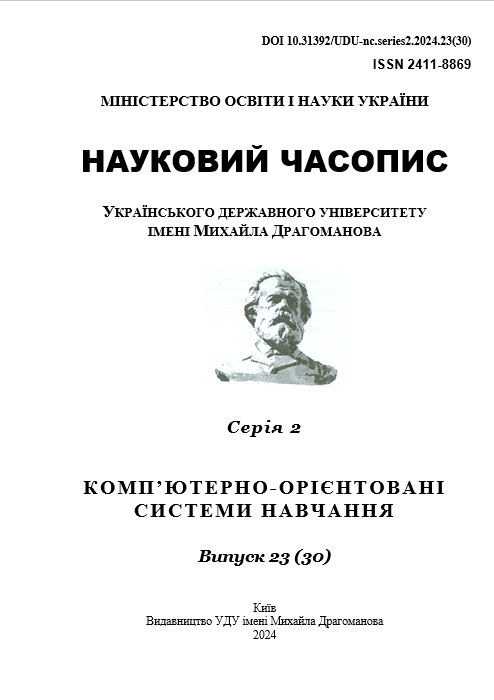Development of digital competence of academic staff: foreign experience
DOI:
https://doi.org/10.31392/UDU-nc.series2.2024.23(30).12Keywords:
digital competence, digital literacy, information and digital technologies, research and teaching staff, foreign experience, euro integrationAbstract
The article presents a literature review of international experience in developing the digital competence of academic staff. The concept of digital competence is revealed, one of the most common tools for its assessment is described – the Digital Competence of Educators (DigCompEdu) questionnaire, which includes 22 competencies grouped into six categories. The study draws attention to certain aspects of the problem, which allow us to take a fresh look at its importance and consequences, as well as what the digital competencies of academic staff in the field of education should be. Attention is focused on the importance of studying foreign experience for its adaptation in Ukraine, given the relevance of European integration processes. The growth of interest in new digital technologies and their implementation has affected all spheres of society, including education and science, where the demand for information and digital technologies has increased significantly. The readiness of academic staff to use digital technologies is one of the key challenges of our time. For the effective implementation of these technologies in the educational process, it is necessary to improve the digital skills and competencies of teachers. Based on the analysis of foreign experience, the current state and prospects for the development of digital competence of academic staff are studied. The key challenges faced by academic staff in the implementation of digital technologies in the educational process are considered, as well as effective practices used in foreign countries are analyzed. The importance of developing digital competence for improving the quality of education and competitiveness of the national education system is emphasized. Different expectations regarding the aspects that can be developed based on this topical topic are presented. The main challenges and prospects for the development of digital competence of academic staff in the international context are highlighted.

